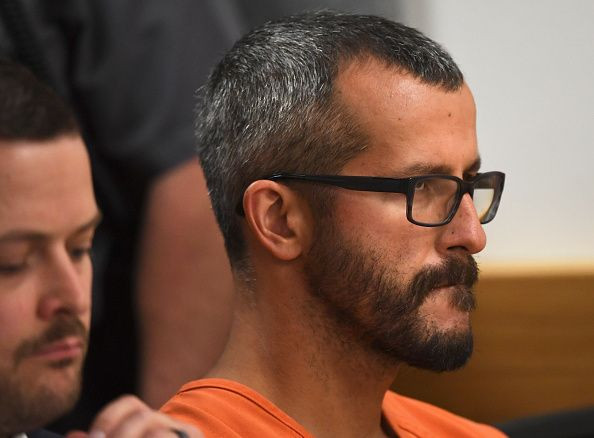Chris Watts Update: Investigator, Detective Discuss Dealing With Trauma A Year Later

Tuesday will mark one year since Frederick, Colorado, native Chris Watts murdered his pregnant wife Shanann Watts and their two children, Bella, 4, and Celeste, 3. As the anniversary approaches, investigators and others who worked on the case have decided to break their silence about how the experience has affected them in the months that followed the gruesome recovery at the oil site.
Following the discovery of the victims' bodies at his work site, Watts would ultimately plead guilty and be convicted of the murders. He was given three consecutive life sentences, which he is currently serving at the Dodge Correctional Institution in Waupun, Wisconsin.
However, the trauma of that day continues to follow the members of law enforcement who worked on the case, according to the Denver Post.
Lead detective Dave Baumhover was present during the recovery process and has since been diagnosed with PTSD due to the events that he witnessed. "It's like when you're a kid and you go on the wrong carnival ride and all you want to do is get off, but you can't. You have no choice until the ride shuts off," he said.
READ: Chris Watts Update: Convicted Killer Blames Former Mistress Nichol Kessinger For Murders
When recounting what the time since has been like for him, Baumhover revealed that he has not worked since his diagnosis in March due to his symptoms being so severe. The 52-year-old also shared that he is unsure if he will ever be able to return to the job "that once drew him like a magnet," reported the outlet.
"I have a hard time dealing with the probability that my career is ended, and not the way that I wanted it to," he revealed, adding, "Some days you feel defeated."
The details surrounding the case and the events also caused trauma for Tammy Lee, a member of the Colorado Bureau of Investigation. She said that she once broke down at a hair salon during a day out with her mom and sister, which eventually prompted her to seek the guidance of a counselor.
Due to the abundance of videos and photos that Shanann had posted online of herself and her children, Lee said she felt as though she knew them. "I felt like I knew what they sounded like. I knew what they looked like when they played and how they sounded when they giggled. I felt like I was mourning their deaths," she said.
These experiences inspired the Colorado Bureau of Investigation to accelerate the process of creating a peer support system in their organization because, according to director John Camper, he understood that his staff would need additional support. This led to him immediately calling a counseling service.
"I mean, it affected me deeply and I wasn't on scene," Camper said, adding, "I wasn't even there. It took me a month to get those images out of my mind."
In April, the U.S. Department of Justice recommended changes be made in order to improve mental health wellness among members of law enforcement, including special programs for their families and implementing regular mental health checks. Additionally, the report recommended a study to be completed regarding suicides in the professions and the circumstances surrounding them.
Colorado agencies have specifically started working towards these goals, including improving counseling accessibility for their staff and the aforementioned peer support program.





















